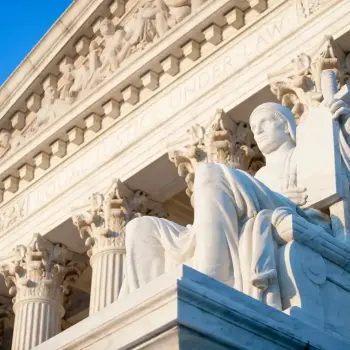I have often wondered—quietly and usually to myself—what would happen if we could edit the Bible. After all, textbooks get edited and publishers bring out new and improved versions that are more in tune with how things are, instead of how things were. Wouldn't it be good if some ecumenical committee could go through the Old Testament and take out all the language about stoning people to death for breaking various rules? Or maybe soften that passage where the Psalmist talks about bashing the heads of the babies of his enemies against the rocks? We could also fix some of those New Testament misquotes of the Old Testament.
Suggesting this is heretical, of course, but it seems to me that it would be better, in some ways at least, to edit the Bible than to ignore it (as we do when it speaks of stoning or divorce), or to reinterpret it beyond all recognition (when we suggest that social justice is anti-Christian), or to selectively lift out phrases that serve our selfish interests (when we preach that God wants us all to be rich). An editorial process would at least be upfront about what was going on.
The "science" in the Bible poses especially difficult problems that call out for editing. I put the word in quotes because there really is no "science" in the modern sense in the Bible—science was born in the 17th century—but the Bible, like most ancient documents, does refer to the natural world. And when it does, it creates serious problems for those millions of Christians who want to interpret it literally, or are unsure how the interpretative exercise works.
The creation story in Genesis, to take the most important example, is embedded within an ancient worldview that contains primitive scientific ideas that we have rejected. The account says, for example, that a great dome or "firmament" resides in the sky and holds back the waters that fall as rain. The stars are attached to this dome. It states that humans were contemporary with all the animals, which would include dinosaurs that we know went extinct long before we arrived. The first verse of the Bible - "In the beginning God created the heavens and the earth" -- claims that the earth was created at the same time as the "heavens." We know, however, that the universe is billions of years older than the earth. Humans were created within a few days of all other life-forms according to Genesis, but we know, for example, that the dinosaurs went extinct a full 70 million years before the appearance of humans.
Many biblical ideas don't fit with our contemporary scientific understanding. Unfortunately, as we have seen all too often through the previous century and into the present, many Christians insist that we have to accept all the details of the biblical story of creation. The Creation Museum in Kentucky contains, among its many exhibits, beautiful dioramas of Adam and Eve in the Garden of Eden, with dinosaurs looking over their shoulders—an impossible scene, but one implied by the Genesis story.
Millions of Americans love the strange story told in the Creation Museum—young earth creationism. Polls show that about half of all Americans—and most evangelicals—accept these ideas. However, young people raised to believe this story are leaving the church in droves, according to a recent Barna survey, when they discover, usually in college, just how untenable these views really are.
Many Christians—Catholics in particular—have made peace with modern science. The strategy is simple: divide the Genesis creation story into a "theological part" and an "ancient science" part and pay attention only to the former. I have often wished though, that instead of ignoring the ancient science, we could replace it with modern science.
I see great value in affirming that God created the specific world that science has uncovered today. This is much better than simply affirming "God created everything" and leaving out all the details. What, for example, do we picture God doing in this act of creation, if we have no concept of the world being created? How can we appreciate the creation if we have no idea what it is? Would this not be like trying to admire a painting in the dark because we have been assured that, if the light was on, we would find it beautiful?
In Seven Glorious Days I have turned on the light to show the reader just how beautiful the creation story is, when we trade the ancient science for its modern counterpart. Too often, when anti-religious writers explain how the universe came to be, they make it sound like a big accident, with no purpose. I argue, however, that a closer look at the story reveals grandeur and purpose in our modern understanding of how the universe came to be.
As an imaginative exercise—not a rewrite of the Bible!—I offer my speculation in Seven Glorious Days as to what the Genesis creation account might look like if it were written today, rather than thousands of years ago.
Visit the Patheos Book Club for more conversation and exclusive author videos from Seven Glorious Days.
9/15/2012 4:00:00 AM




